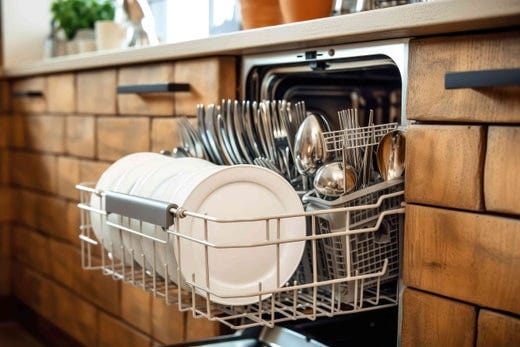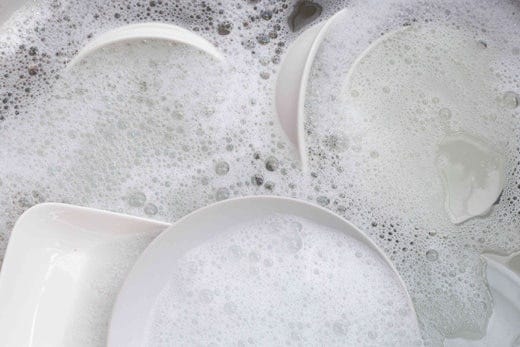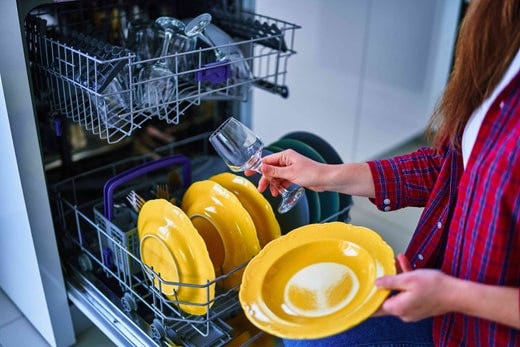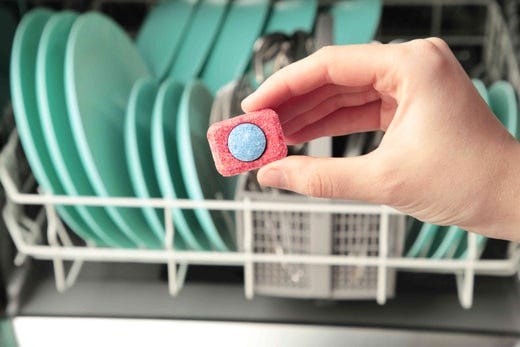
What Makes the Quietest Dishwasher?

In the rhythmic hum of a modern kitchen, the unsung hero often goes unnoticed: the dishwasher. But what sets apart the whisper-quiet models from their clunky counterparts? From advanced sound insulation to strategic water flow designs, manufacturers compete fiercely to master the art of silent cleaning.
Beyond decibel ratings, factors like motor efficiency and door sealing play pivotal roles. In this article, we explore what makes the quietest dishwasher and compare various decibel levels to help you make a better decision.
What does decibel mean in a dishwasher?
Decibels, measured in dBA (A-weighted decibels), gauge the noise emitted by a dishwasher during operation, providing insight into its volume level.
Lower dBA ratings signify quieter performance. Generally, dishwashers produce sound levels ranging from 40 to 50 decibels (dBA) - akin to the sound of typing on a keyboard- with those on the lower spectrum being quieter compared to others in the range.
What makes a quiet dishwasher?
Here are some of the factors that affect the decibel level of a dishwasher:
- Insulation: The effectiveness and quantity of insulation placed between your dishwasher and cabinetry contribute significantly to reducing operational noise.
- Material: Opt for stainless steel dishwashers, as they excel in sound dampening compared to their plastic counterparts. They offer a quieter experience while enhancing your kitchen's aesthetics.
- Disposal: While dishwashers with a food disposal feature may generate loud sounds, newer models often incorporate a food trap mechanism to minimize noise levels effectively.
- Water Flow: Water flow dynamics, including water force, speed, pump systems, and cycle innovations, influence the noise level during operation, all of which contribute to achieving a lower dBA rating and a quieter dishwasher experience.
Comparing dishwasher decibel noise levels
Here’s a comparison between the decibel noise levels and their common daily sounds. Dishwashers typically operate within the 40 to 50 dBA range, and a lower rating indicates a quieter appliance.
- 40 dBA: Whispering in a library
- 45 dBA: Washing hands
- 50 dBA: Typing on a keyboard
- 60 dBA: Crashing waves
- 70 dBA+: Chirping birds to blaring alarm clocks
The noise level of your dishwasher depends on your personal noise tolerance. Take into account your sensitivity to sound. Additionally, consider the placement of the appliance; for instance, if your kitchen is part of an open-concept layout near a family room, a quieter dishwasher may be more desirable.
.png?width=70&height=45&format=png&quality=50)


